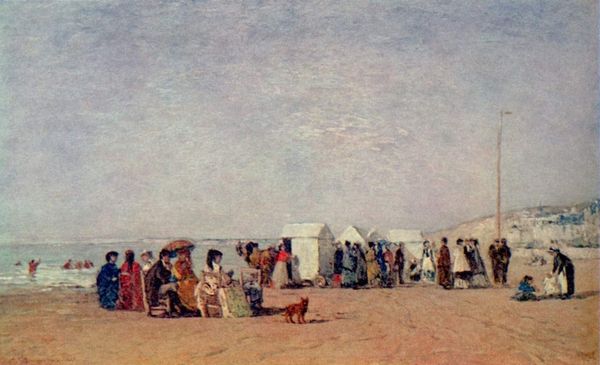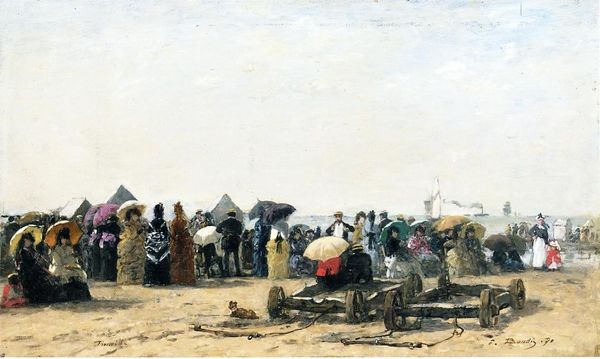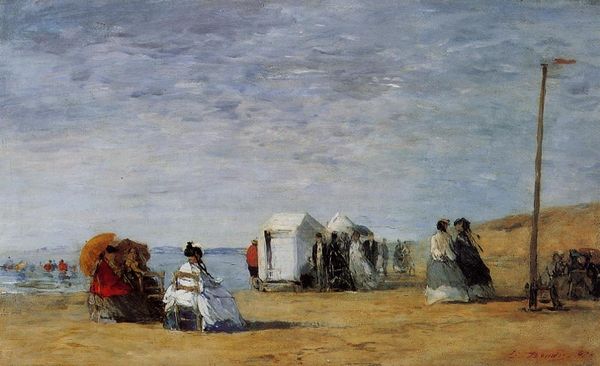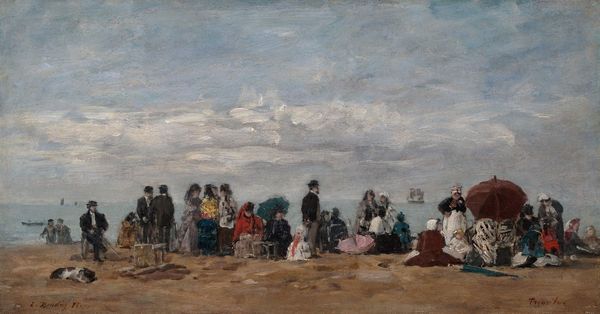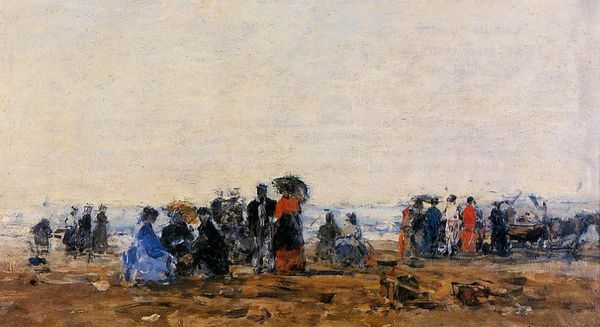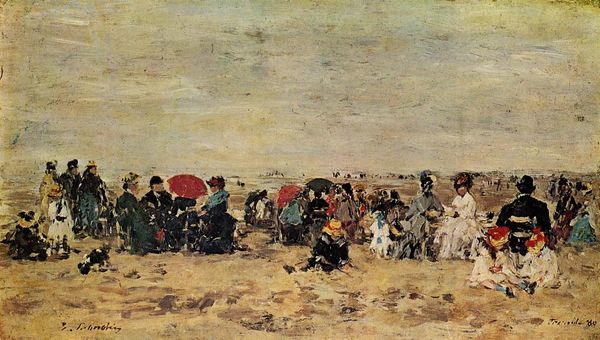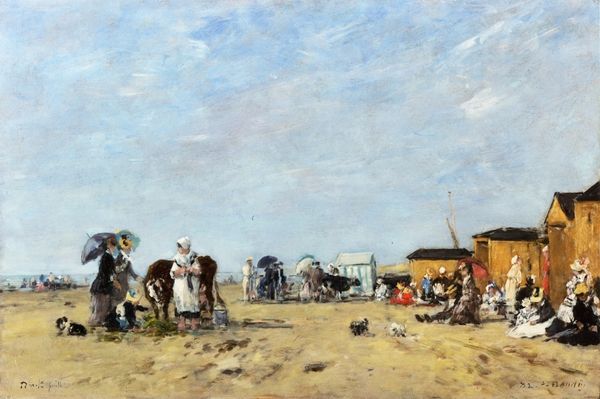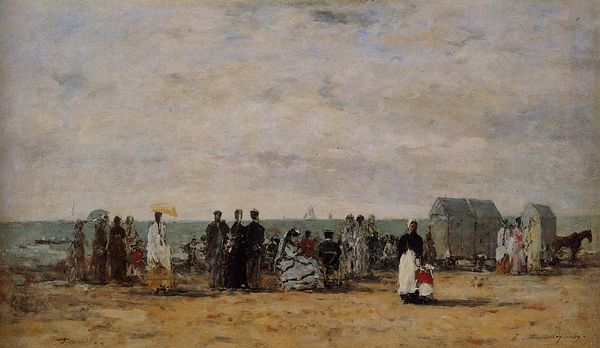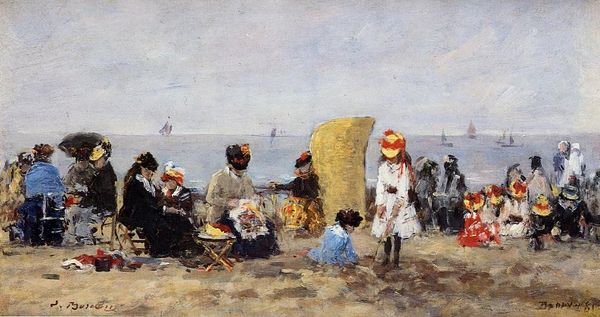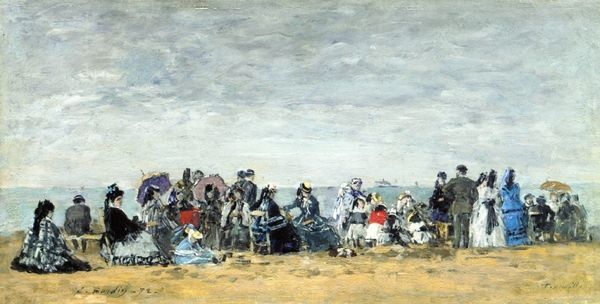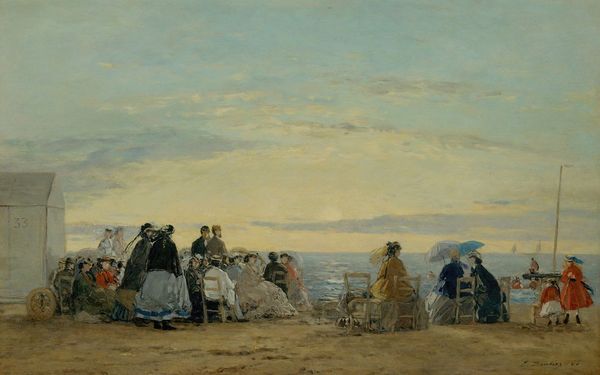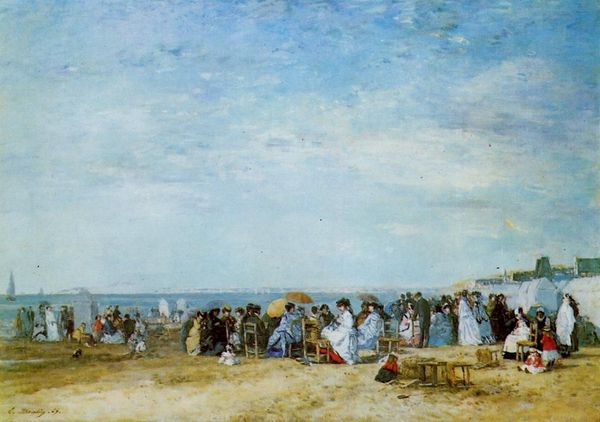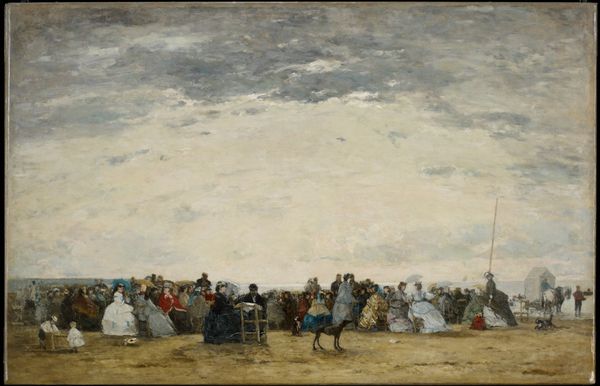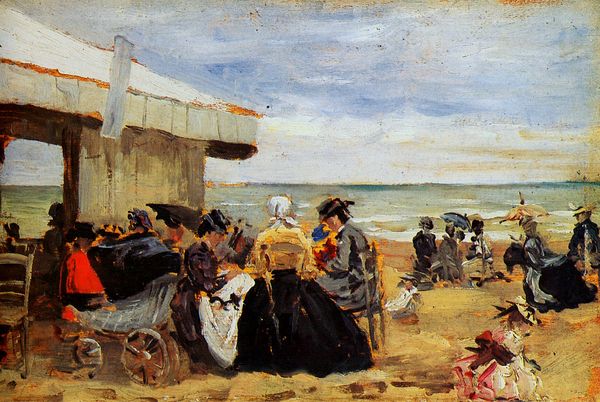
plein-air, oil-paint
#
impressionism
#
plein-air
#
oil-paint
#
landscape
#
oil painting
#
genre-painting
#
watercolor
Copyright: Public domain
Eugène Boudin captured this beach scene with oil on canvas, a snapshot of leisure in a private collection. The parasols, scattered like delicate fungi, immediately catch the eye. These aren't just shields from the sun; they're symbols of status, defining the bourgeoisie at play. Consider the evolution of the parasol: from ancient Near East, where it denoted royalty, to Boudin's Trouville, where it whispers of a different kind of power—economic privilege. This motif echoes across time, reappearing in countless depictions of the elite, each iteration subtly shifting its meaning. What was once divine right becomes, here, the right to recreation. The beach itself, a liminal space between land and sea, acts as a stage. The figures, though individual, merge into a collective experience, a shared pursuit of pleasure. This image, seemingly simple, engages us on a deeper level, stirring subconscious associations with leisure, class, and the cyclical nature of status symbols. The parasol remains, its form evolving, but its essence—a marker of distinction—endures.
Comments
No comments
Be the first to comment and join the conversation on the ultimate creative platform.
